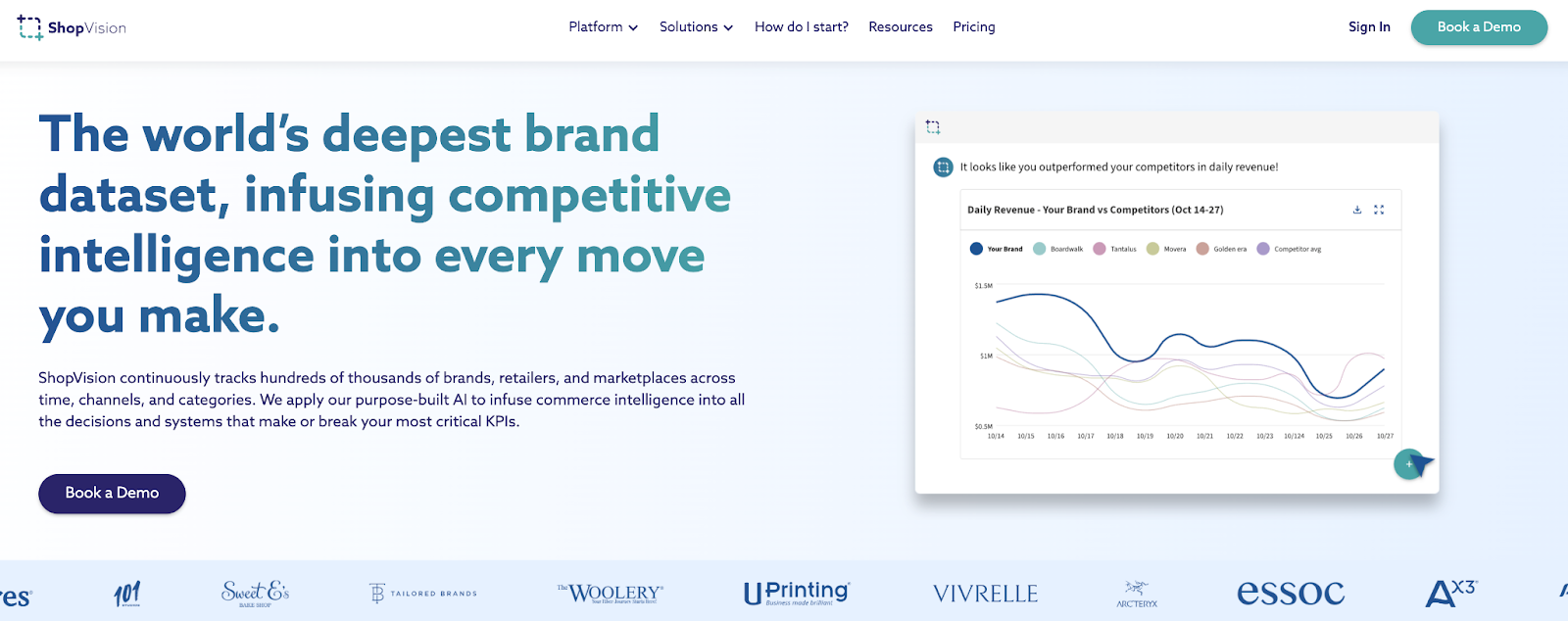

Part of our role as Brightspark’s Venture team is to nurture the firm’s network in the tech community, and stay ahead of the curve when it comes to tech trends. This involves a lot of events – they’re a valuable way for us to make new connections and learn from industry thought leaders.
Web Summit, the renowned tech conference held annually in Lisbon, has been on our radar for quite some time. And for good reason: Forbes has said they run “the best technology conference on the planet”, and the Atlantic says it’s “where the future goes to be born”.
This year, The City of Toronto assembled a group of tech leaders from around the nation to attend the conference. As some of you might know, Toronto is hosting the first Collision conference – Web Summit’s North American sister event – this upcoming May. The Web Summit’s Canadian delegation was put together to promote the city as the home of Collision in 2019.

It was a no brainer for Brightspark to join. With 7,000 attendees from 170 countries, 1,200 speakers and over 2,000 startups participating - the conference is a unique playground for tech investors like us to keep in touch with current global trends, learn from different industry leaders, mingle with other investors from around the globe, and widen our horizons.
Missed Web Summit? Wondering if you should attend Collision? We have summarized our team's main takeaways, favorite talks, and best memories from Lisbon.
Aproveite!
We left Web Summit with a new perspective on...
... the world’s perception of Canada
Having a strong and diverse Canadian delegation definitely made an impact to increase the crowd’s awareness of our nation’s thriving tech industry. We found people to be very curious about Canada. The political turmoil happening in the United States is making many investors and founders reconsider doing business in North America, and seeing Canada emerges as much smaller, but promising alternative is a breath of fresh air.
At the same time, there is still a lot of work to do to better communicate what makes our nation special outside of its strategic geographic position and frigid weather. While talking with international investors, we emphasized our exponential pool of technical talent, the quality of deep technologies coming out of our universities, and our edge in Artificial Intelligence and Quantum Computing.
Overall, we believe Canada has just started its ascension to become a leading technology hub worldwide, and that we will keep seeing an influx of resources migrating towards our nation in the following years.
... the state of Automotive tech
The automotive sector is among the largest of any industry, and yet most conferences don’t provide enough of a focus on the challenges and opportunities that exist in a market that spends more than almost any other. So, it was awesome to see a track devoted to automotive tech at Web Summit.
Our highlight on the topic has to be Mate Rimac’s discussion on the future of transportation, with data at its core. If you don’t know Mate, look up Rimac Automobili and the game-changing work they do supplying the electric needs of major OEMs, and don’t skip the mind-boggling Concept 2 vehicle.
Automotive focus wasn’t only sidelined to its track of great speakers, important conversations were also featured on the main stage. We heard from top executives at Aston Martin, VW Group, and more. The depth of the discussions gave a real sense of what these companies are thinking through as they shape the future of how we move from place to place.
Tesla’s absence did not go unnoticed. The company fundamentally changed the industry doing what others thought was not possible, and ushered in a new paradigm that is starting to mature. Here’s hoping the folks behind Web Summit are just saving Elon for the Collision conference!

... the future of Fintech
The future is mobile, and FinTechs are no exception. Mobile technology is already making an impact on lots of industries, including financial services, and startups offering banking services on the phone will have a huge advantage in the upcoming years. At the same time, we’re seeing a growing number of digital banks that have no physical branches and provide financial services with the help of apps. Digital banks are particularly popular among younger users, who prefer to use their phones for banking services that let them create accounts and make transactions using mobile devices. A few examples stand out: Revolut, Kabbage, Robin Hood.
We also heard many express their concerns about privacy in FinTech and the unknowns that surround this issue; who owns the data? how can we share it? how to protect it? Is Blockchain technology the answer? It’s no question that security should be one of the top priorities for FinTechs companies. Finally, Blockchain and Distributed Ledger is here to stay. Financial Institutions and clients are starting to pay attention to, blockchain and distributed ledger technology particularly in trade finance as well as in healthcare. FinTech as an industry is still early, and we are keeping an eye out to see how this will play out for the many Canadian companies building products in this space.
...Canadian deal flow
As Brightspark is focused on Canadian investments, our goal at the Web Summit was not to find investment opportunities, but we aimed to benchmark our Canadian deal flow against what is happening worldwide, especially since we fund category winners that compete on a global scale. We saw dozens, if not hundreds, of international companies during our stay in Lisbon and although some of them are working on very interesting challenges, we didn’t feel that the quality was any higher to what we see in Canada in our day to day.
We came back from Web Summit more optimistic than ever about the future of Canadian tech companies, and we are convinced that we have all the tools in Canada to succeed.
...tech and social responsibility
Finally, one of the recurring and interesting topics across Web Summit was social responsibility. From the implication of artificial intelligence on workforces worldwide, the manipulation of patient health data and customer personal financial information, climate change, the impact of the growing middle class in Asia and India, the excessive Earth population, and so on - we felt like the societal role of technology was addressed and considered at a much deeper level than in North America generally.
It is something we will be keeping top of mind, as long-term winning companies should have a deep value creation chain and be able to adapt to tomorrow’s societal changes.
Too good not to share: Outstanding keynotes
The future of venture capital
Speakers: Trae Vassallo (Defy.vc), Greg Sands (Costanoa Ventures), Alex Konrad (Forbes Media)
Keynote summary: Vassalo and Sands covered major shifts happening in the venture capital landscape, mostly focusing on the recent strategy of Top 20 (billion dollar) firms and what opportunity this creates for smaller firms.
Takeaways for VCs:
Top 20 firms are moving to later stage deals since they have more capital to deploy. Indeed, it is very hard to focus on $3M early-stage deals vs. $50M growth cheques when you have so much capital to put to work. There is also a ton of seed-focused funds, but not that many strong Series A-focused ones. There is a major opportunity for Series-A funds to go back to strong fundamentals in our VC practice.
Takeaways for founders:
There are major differences between taking money from a big firm versus a smaller one, and the most important one is entrepreneurial alignment. Smaller, self-made VC firms are entrepreneurs just like you, our success depends on your success, you matter.
In times with political and economical instability (such as the present), founders should partner with VCs that have been through downcycles in the past, that know how to manage down rounds and frugal times – firms that were in business during the 2008 crash and in the early 2000s. If you want to read more about being a VC during a downcycle, don’t miss Mark’s Skapinker’s post on the topic.
Crypto's roller coaster year
Speakers: Garry Tan (Initialized Capital), Tim Draper (Draper associates), Peter Smith (co-founder blockchain), Jen Wieczner (Fortune Magazine)
Keynote Summary:
Although it seems like we hear about cryptocurrencies hype all the time now, the movement is really still in its inception. It’s true that 2017-2018 saw tremendous growth in the industry and market capitalization (now around $250b), but the fact remains that still, only a small percentage of the population owns any sort of cryptocurrency. So today, to see volatility for the Bitcoin is not really surprising. To bring more people into cryptocurrencies, two things need to happen; efficient regulation and infrastructure. This panel was focusing on infrastructure. Today scalability is a massive issue. This issue needs to be addressed. Mass adoption won’t happen if infrastructure can’t scale, simply because most people will not accept slower applications than they used to (compare to the Visa network) just for the decentralization concept. The industry needs to work on technology that will make transactions easy. When proper infrastructures will be in place, the number of users should increase exponentially to hundreds of millions of users. Crypto will take over the way products and goods are transacted after we reach that inflection point. A company like Coinbase (now valued at $8b) will take-off and could be valued in the near future more than $1T. Large financial institutions and big banks (eg. Goldman Sachs) who are not completely in the game today will need to react at some point because they won’t be able to buy companies like Coinbase passed a certain valuation threshold.
Regarding the bitcoin, according to Tim Draper, the bitcoin will be valued at $250k around 2022. This will represent around 5% of the market share of total global currency market ($85T). This will also happen when crypto will be used for everyday mass-market transacting
Web Summit Quickfire Questions Round
Who was a standout speaker?
Jacques: Gary Tan (Managing Partner of Initialized Capital). Gary has invested in Coinbase (a secure platform that makes it easy to buy, sell, and store cryptocurrency like Bitcoin, Ethereum, and more) at $8b valuation. It was great to see his passion for crypto and the future of cryptocurrencies.
Jaafer: Ray Dialo - an icon of business, investment and management. It was a pleasure to be able to hear him discuss his principles of doing business. Very insightful and captivating, with many lessons for everyone at all levels of their career.
Eleonore: One of the most inspiring talks I attended was We Need More Social Entrepreneurs by Rick Ridgeway, VP of Environmental Affairs at Patagonia. Patagonia has become a staple of the VC attire over the past years, but I knew little about the brand’s founding story and detailed impact commitment and strategy.
Filled with mountain ascension stories and wise life advice, Ridgeway’s keynote almost brought me to tears and gave me food for thought about doing everything in life with purpose. He ended the talk by quoting The Summer Day by Mary Oliver: “Tell me, what is it you plan to do with your one wild and precious life?” You can listen to his talk here.
Favourite food while in Lisbon?

Jacques: Santa Clara dos Cogumelos. The ceviche and the Shitake were out of this world.
Jaafer: A neighbourhood restaurant where every dish centered around mushrooms! My favourite was the gnocchi I stole off Eleonore’s plate. :)
Eleonore: My coup de coeur was the Time Out market where you can get tasty food, sweets, and drinks for around 20 euros. Also, Pastéis de Belém is 100% worth the line-up.
What was the best thing about Web Summit?
Jacques: The content is awesome. I got the chance to meet entrepreneurs that are really committed to their projects. Also getting the chance to connect with VCs from around the world for future networking and deals referrals.
Jaafer: By far, the awesome content. Someone told me that Web Summit fills the agenda with people that actually know what they’re talking about, and don’t accept paid spots. If that’s true then it will be my go-to every year, no one needs talking heads.
Eleonore: The massive pool of passionate people. I’m a sucker for quirky parallels between tech startups and other fields, like between startups and movies or entrepreneurs and athletes - the broad spectrum of industry leaders at Web Summit gave me lots of room to make interesting encounters outside of our usual VC circle. Oh, and the Portuguese wine was divine.
What was the top buzzword or phrase you overheard at Web Summit?
Jacques: Protect your company culture at all costs.
Jaafer: Does “obrigado” count? Everyone in Lisbon is so friendly!
Eleonore: Decentralized. Decentralized everything.
#1 tip for anyone wanting to attend a Web Summit conference?
Jacques: Plan your agenda accordingly and RSVP for events in advance, if not, you’re DOA.
Jaafer: Be realistic when planning your agenda, and make sure you are diligent about moving between keynotes. Many times, I would miss speakers because of sideline conversations or travel time to walk between areas.
Eleonore: Two things: phone battery pack and sleep schedule management.
Web Summit was entirely worth the trip and we will definitely be attending the Collision Conference in Toronto in May. Registrations are open, we hope to see you there!


